#during the pandemic of the century (bad)
Text
By the time the tx winter storm had hit I had already been steadily spiraling down the mdzs hole and I was not about to stop. Like all the power was out and I was using my remaining laptop battery life to keep reading mdzs. When my laptop battery died during the afternoon of the first day as I was reading the chapter where lan wangji asks wei wuxian to go back to gusu with him for the first time, I was literally like this

.
Both about the story and the circumstances. Because what else could I be like. You all understand. Anyways, very big impact on my mood and memory, the whole ordeal.
Now it's freezing again and while it's not as bad (awesome), school districts and some businesses are shutting down for a couple days and it's having me Heavily reminisce intro mdzs times. That being said, you'll probably see a good resurgence of mdzs content on my blog bc I've already finally started watching the third season of the donghua as I can apparently never escape the hold mdzs has on my soul
#mdzs#other interesting texas winter storm personal experiences are#my bday happened during the tx winter storm (bad)#during the pandemic of the century (bad)#but it was also the day perseverance landed on mars (good fantastic very awesome:))#the day of my bday the snow was still fresh and breathtaking i cannot express how magical that is especially here#at some point i connected my cd player to a speaker and we had a nice evening#my mom and i went to check on an eldery neighbor who lived by herself and i saved a small bat that was on the concrete in front of her home#yes i was very careful handling the bat and he was taken to a wildlife rehabilitation center as soon as was possible#a lot of people got good sleep bc when you'ee used to power and then you dont have any for a large part of the day and all of the night#you just kind of go to sleep when the sun goes down#i did save my phone battery for emergencies but i was tempted to read mdzs on it lol#akbp
0 notes
Note

Judeo-Arabic, Ladino, Romaniyot, Judeo-Italian, Krymchak... No Jews have been subjected to genocide and the destruction of culture and language, right. That wasn't a motivator for the creation of Israel, right.
Just more Europeans endlessly colonizing the Middle East and fetishizing one side of its totally unrelated conflicts to ACTUALLY be about themselves.
I've said it before - some of the absolute worst, most poisonous fantasy-based takes on I/P come in particular from Ireland and South Africa. Because when you are horribly oppressed by your neighbors for centuries, and then the oppression mostly ends but your neighbors are still your neighbors and you never get closure or restitution or anything, it can be hard or dangerous to blame your neighbors but it's very easy to blame the Jews. Like people who don't solve the problems of a bad home life but instead turn to drugs - it's commonly, mundanely human, a very understandable bad coping strategy. It doesn't become "true" just because of how common it is.
More on the antisemitic shit you hear from Ireland in particular:
86 notes
·
View notes
Text
Before folklore came out, I would tell people that liking Taylor Swift was the straightest thing about me. Then folklore, evermore, and Red TV came out. As I saw the queer themes in those albums, I began seeing them in reputation, 1989, Speak Now, Fearless, and debut. The themes have always been there, fluctuating in subtlety but steadily increasing since 1989. So why did I think of Taylor Swift as so quintessentially straight? You guessed it: Compulsory heterosexuality and heteronormativity.
Taylor was supposed to be universally relatable. When she explained her songs, she refrained from using gender-specific language. Us. We. That person. Someone. And people that as “Me. I. A man. That guy I told everyone I was dating.” We were told she dated men, and a woman dating a man = heterosexual. No other options.
Even now, Genius will remove lyric annotations that imply her lyrics might not be about a man. Even with Hits Different, Question…? and Maroon. Taylor says reputation is about Joe and swifties believe her bc “Taylor wouldn’t lie to us!!!” even though there’s so many inconsistencies with the narrative that Rep is about Joe.
To say outright or even imply that Taylor might write songs about women because she likes women is met with scores of comments about how we “shouldn’t speculate on her sexuality!!! she said she’s straight!!! stop being disrespectful!!!!” But Taylor, as she has never said the words “I’m gay” has never said the words “I’m straight.” What she has done is align herself with. LGBTQ artists (YNTCD music video, Phoebe feat., posting support for queer musicians on social media, and, of course, the Pride parade that is her list of openers for the Eras Tour).
If Taylor didn’t people thinking she’s queer, she would’ve thrown in “as a straight woman…” in her speech before performing Delicate at multiple Pride events, when being interviewed about her advocacy during the Lover era, or at literally any point in her adult life.
Writing about women from the male perspective is queer. Her dressing in drag for the Man music video and showing herself in bed with a woman is inherently queer. The way she writes songs about her love interests’ girlfriends is queer. People bend over backwards to justify the gay shit she does, the same thing people have done for centuries with Sappho, Emily Dickinson, Louisa May Alcott, and so many sapphic artists throughout history. Taylor Swift is THE songwriter of our generation. She IS the music industry. But swifties, and hetlors all the more, would rather believe she is stupid and ignorant rather than intentionally using phrases like “hairpin drop,” “lavender haze,” “all the bricks they threw at me,” “you’re the West Village.” When she describes her muses as having scarlet lips, having hair that falls into place like dominos and braids in a pattern, gorgeous, it’s just because she thinks men are really pretty I guess (insert MetGala 2016 Joe photo). When she describes men as toys, playthings, “dudes who give nothing,” she’s being satirical. When she says “weird rumors,” that can’t possibly refer to rumors about marriage, pregnancy, or her having had multiple children during the pandemic. It’s *weird* to say that Taylor is queer. It’s weird and bad and gross. Why? Because people saying this believe being queer is weird, bad, and gross.
But it’s not weird. Being queer is beautiful, a gift. And that gift comes with a world that hates who we are. Of course Taylor is too soft for all it. And I admire her softness, that she continues to write vulnerable music. Midnights (esp 3am Edition and Hits Different) holds her loudest lyrics. She’s never beating the rumors and she doesn’t want to. Even if she never says the words “I’m gay/bi/pan/a lesbian,” the eardrum-shattering volume of her lyrics is more than enough for me.
#gaylor swift#gaylor#taylor swift lyric analysis#queer#question…?#maroon#hits different#i swear you could hear a hairpin drop#midnights
1K notes
·
View notes
Text
S3 EP21 (The Cloud Minders) oookay I genuinely don’t know what to think of that title
Anyway:
- OMG Kirk actually records his diaries on the bridge that’s so funny
- The chair swivelled so hard when Kirk got out of it that he had to go back to steady it with his hand
- The got roped into this one… (you see cause there’s a rope. It’s funny I promise)
- hi Margaret, I see you’re back (referring to the fact that Margaret Armen wrote this one)
- KICK !
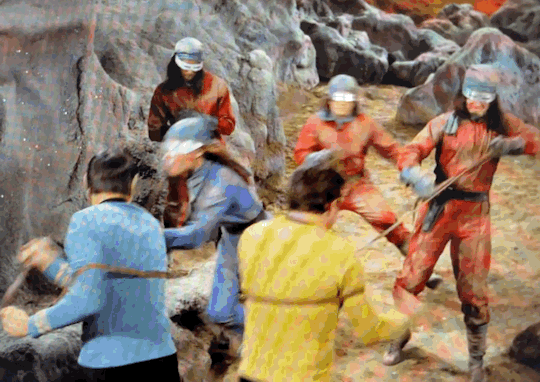
- “I have never before met a Vulcan, sir.” “Nor I a work of art, madam.” I’d melt personally
- I have a feeling the disrupters have very reasonable demands
- WHAT THE FUCK THAT GUY JUST JUMPED
- Kirk sleeping while Spock internally monologues contemplates. Relationship goals.
- OKAY but the back of Droxine’s dress is so fucking cool. Peacock aesthetic.
- OKAY but like this other lady’s dress tho. The deeper blue. (Self note: draw Spock and McCoy in the dresses)
- ICKY ICK NO KIRK NO
- “You only take a mate once every seven years.” Yeah but he’s married to the doctor and captain aboard the ship
- Droxine wants him so bad goddamn
- “Extreme feminine beauty… is always… disturbing… madam.” “Spock!” As soon as Kirk calls him he’s outta there.
- Vanna is in the right here. Droxine is awful.
- This is such a good episode omg
- it’s showing how rich people delude themselves and justify having lower classes by reducing people to functions and workers.
- FLASHING LIVHTS HOLY HELL (careful showing this to your photosensitive friends)
- Is Kirk going to get put in the torture machine this episode? (Edit: no)
- Spock, Droxine is a rich idiot who is very used to justifying her actions with self inflicted ignorance, DO NOT PERSUE HER
- RAHHH WE LOVE VANNA
- hiii McCoy hiiiiiiiii
- no fuck off mccoy fuck off doesn’t matter if they’re slightly intellectually ‘inferior’ they still deserve rights and they’re still obviously intelligent life
- oh okay the gas is causing slight brain damage but still. The disrupters are in the right. And they’re gonna help them, yay!
- The Advisor said “erect” lol
- Kirk, obviously the Advisor knows that in order to stay in power he needs the Troglytes to stay confused, disorganized, and separate from their part of society… he’s doing this ON PURPOSE
- Kirk, go down there and punch the Advisor, please
- “Captain, if you are apprehended deliberately violating the High Advisor’s orders, he will be within his rights to have you executed if he chooses.” “If you’re about to suggest that you contact Vanna, the answer is negative, Spock. That goes for you too, Bones.” Bones so readily goes to suggest himself but is immediately shut down. Kirk knows their bullshit

- “Hours can be centuries, just as words can be lies.” That goes so hard wtf
- So why doesn’t Kirk beam out of there with her and directly to the caves? Well there wasn’t any trouble anyway but whatever
- LMAO the mask is so silly omg omg
- What the fuck. With his bare hands? (Edit: I’m talking about mining rocks. Promise.)
- Why did he cause a cave in? Omg he’s an idiot.
- Kirk is so done with these idiots. He’s just gonna put them in a cave and let the gasses get them
- Kirk’s not doing well… McCoy and Spock are very worried about him
- HE KICKED ONE OF THE MORTAE OUT OF HIS HANDS
- Kirk’s ass I really like Kirk’s fighting style, lots of kicks and a little bit of whacking

- “I don’t like filters or even masks. I like the word ‘protector’ much better.” Did some Trekkie’s call masks this during the pandemic?
- KIRK DO NOT KISS HER
(He doesn’t but the vibes were terrible)
Masterpost
Teleplay by Margaret Armen
Story by David Gerrold & Oliver Crawford
#star trek#star trek tos#star trek the original series#spock#s'chn t'gai spock#tos spock#leonard bones mccoy#tos mccoy#tos bones#captain james kirk#james t kirk#tos kirk#the cloud minders
21 notes
·
View notes
Text
youtube
transcript of the video below
And this was kind of channeled for me during the Pandemic, when (and whether it's the same in America, I don't know) in Britain, a lot of the churches basically focused on giving public health messages, kinda telling us to wear masks, to wash our hands and stuff. They were excellent messages, no doubt, but, you know, everyone else was saying that as well.
I think that churches should celebrate what sets them apart. The problem for churches, basically, is that they won; so all the things that seemed radical and strange and bizarre to the Romans are now accepted. And a lot of what the Church has traditionally provided —education, healthcare, or so on, you know, charity relief— have been nationalized, the state provides that. So what is left for the churches to do?
And I think what the churches should do is to celebrate all the mad-weird stuff that, you know, you're not getting from the Department of Health. So... angels, and God thundering from Mount Sinai, and all that kind of thing. Book of Job; all that stuff. I thought the weirdest thing, in the sense of "it sent shivers down my spine" and opened up vistas of possibility was the one exception that proves the rule in terms of churches not…. not making sense of the horrors that the world was going through during the Pandemic, which is quite early in the lockdown in Rome.
The Pope — I can't remember what he was doing, he was… it can't have been a Mass, he was… it was some observance, in St. Peter's Square; and it was completely empty. Just him, in St. Peter's Square; and he, he made prayers and did whatever he was doing, and as he was doing it, bells were clanging out over Rome and the wailing of ambulances taking the sick to hospitals. And he went and prayed before an icon that tradition says had been sent from Constantinople in the reign of Gregory the Great; an icon of Christ, the infant Christ and the Virgin.
And Gregory the Great, who was pope in the sixth century, had become pope during a period of plague. and his papacy existed in the context of the kind of suffering that we were going through. And he wrote a great commentary on Job, the Book of Job, which is, perhaps, the profoundest, most troubling, most (and for that reason I think) most satisfying attempt in the Bible to explain how a good God can permit evil to happen. I mean, it doesn't give an answer, but it kind of transcends, perhaps, the need to have an answer for that.
And watching that gave me a sense of… the unbelievable wealth of the Christian attempt to explain why we, why we're here. Christianity is the most… successful explanation that humanity has ever come up with to explain why we're here, and why bad things happen, and why good things happen, and the whole nexus of it. And that is an unbelievable reservoir for us to draw on. And I felt that very, very strongly writing Dominion.
Kind of… my eyes were opened up to the, the incredible richness in this tradition, and I think that is part of the weirdness; moments that enable you to feel that, to feel that you're not just you in 2023. That you're part of the totality of the human experience that is (perhaps) embraced within the mind of God. I mean, it's a very, very profound feeling, I think.
13 notes
·
View notes
Text
Bad news for Republicans: violent crime is down across most of the US.
Donald Trump and far right media want people to believe there is a massive crime wave sparked by hordes of bloodthirsty migrants charging in waves across the southern border. In fact, the spike in crime which began with Trump's botched response to the COVID-19 pandemic is over.
To hear the latest version of Donald Trump’s “American carnage” narrative of a country lost without him, you would think law-abiding citizens are cowering in their homes or stockpiling weapons to deal with a massive crime wave that’s due to illegal border crossings caused by various nations emptying their prisons and by leftist “Soros-funded” prosecutors gleefully opening our own penitentiaries. The idea of an ongoing crime wave is incorporated into all sorts of MAGA rhetoric, including claims that prosecutors pursuing cases against Trump in New York, Atlanta, Florida, and Washington, D.C., should instead be frantically trying and jailing predators who are cavorting on the streets.
The alleged threat of murderous “animals” who entered the country illegally has been crystalized by Republican agitprop about the tragic death of Georgia nursing student Laken Riley, who was murdered while jogging, allegedly by an undocumented Venezuelan migrant. But graphic, horrifying anecdotal evidence does not an actual crime wave make. And the more we learn about what’s actually happening in our major cities, the clearer it is that the surge in violent crime that did occur during the COVID-19 pandemic continues to subside.
The COVID crime surge largely ended in 2022. Then the incidence of murder and other violent crimes dropped significantly in 2023, according to preliminary federal data, as CNN recently reported:
Fact check: Trump falsely claims US crime stats are only going up. Most went down last year, including massive drop in murder
To the degree that migrants are involved in criminal activity can now be attributed to Trump's blockage of border security legislation in the House by his spineless minions on Capitol Hill.
Bipartisan border deal hits legislative wall as Republicans say they will block bill
Republicans are now officially the owners of border chaos – not the solution to it.
Back to the featured article...
[W]hen a long upward trend in crime during the 1960s, ’70s, and ’80s — a true crime wave — finally came to an end, then dramatically reversed. The current numbers are beginning to show that we’re more than likely in a long period of stable (and, by past standards, relatively low) crime rates that were briefly interrupted by the many dislocations the pandemic caused in American life (and police effectiveness). So the myth of a deadly threat to Americans stemming from liberal policies on the border and in the justice system is mostly just that.
Perceptions of public safety, of course, aren’t always in line with objective reality, and violent crime is horrifying even if it’s not as prevalent as law-and-order demagogues suggest. An October 2023 Gallup survey that coincided with growing evidence of dropping crime rates showed 77 percent of Americans agreed there was “more crime” in the country than in the previous year.
Spectacular crime stories are always going to grab headlines. If it bleeds, it leads has been one of the mainstays of American journalism for centuries. You'll never see a headline in the NY Post like Murder Rate Plummets!.
One thing that is often overlooked is that the "long upward trend in crime during the 1960s, ’70s, and ’80s" mentioned in the article came to an end in the 1990s during the Clinton administration.
For ideological reasons, Democrats have been too restrained about publicizing their own law and order successes. As with the 1990s, another drop in crime is taking place under a Democratic administration – despite GOP attempts to exploit individual incidents of crime.
Donald Trump himself is a "one man crime wave".
youtube
#dropping crime rates#law and order#crime#murder rate#donald trump#american carnage#trump border chaos#trump covid-19 spike in crime#trump administration's botched response to covid-19#trump is a one man crime wave#republicans#election 2024#vote blue no matter who#Youtube
14 notes
·
View notes
Text
Do you ever think about the fact that the reason Crowley hates the fourteenth century so much is most likely because the Black Plague was rampant at the time, killing a THIRD of Europe and didn't exclude children? Crowley probably had to stand around pretending to be happy about the death and destruction while quietly and secretly mourning the countless lives. Maybe he had to watch a child be consumed by illness and die in his arms, and maybe he was the only person who cared about the kid. He would have had to watch dozens and hundreds of bodies be buried in mass graves and he probably already knew that it wasn't going to stop, it was going to keep spreading and infecting and killing men, women, and children. Orphanages were hit hard, and nobody but Crowley would even look twice at the dead. And then, think about the pandemic and how that must have made him think about all that all over again. Sure, there have been dozens of other major plagues in history but that one would probably stick in his mind the most. When Aziraphale asked him if he was out and about during lockdown, Crowley came up with excuses that really weren't excuses, he just plainly said that if he set a bad example, other people might follow him and die. Fun thoughts, happy thoughts.
#aziraphale#crowley#aziracrow#aziraphale x crowley#crowley and aziraphale#good omens#anthony j crowley#Crowley makes me sad#anthony crowley
43 notes
·
View notes
Text
let's talk about daryl and leah.
i think it's time that i address this on my blog, especially now that i've had plenty of opportunity to process their entire arc since watching it not too long ago. this got to be so long that i'm convinced it may be the daryl dixon megapost of the century, but it's very important ( mostly to me lmao ).
suffice to say, this will contain major spoilers for the show's later seasons. there's basically a tl;dr at the end but if you read this whole thing... i love you.
first thing's first, like it says in my rules, this blog operates under the idea that daryl's romantic relationship with leah never happened. i do believe that he did form a strong bond with her in order to line up with the reaper and commonwealth arcs, but it never went deeper than being close friends.
there are many reasons for this. i personally believe that it's a disgrace to daryl's character for the writers to simply shoehorn an entire romance arc into one episode that was filmed during the pandemic— aka, it was written to fill space while the world was waiting for safety and filming restrictions to lift. because of this, it all felt like an afterthought. it was rushed in every way no matter how many giant "3 months later..." timestamps they slapped onto the screen, and norman himself has said that he was disappointed and wishes that a romance plot with daryl would have been better executed.
beyond that, it simply ignores all of the character development that daryl has gone through. really, it ignores his entire personality. look me in the eyes when i say: this man has no game at all ( sorry, daryl ), and he's never been in a romantic relationship in his life. he's never been interested enough to pursue anyone. he's also slow to warm up to people, even in later seasons. so you mean to tell me that he all of a sudden fell into bed with this person who was nice to him one time after being a complete asshole to him every other time they met before then ?
they did daryl a giant disservice by showing him entering a romantic relationship with such little meaningful interaction. yes, they have a small montage of the two of them getting to know each other, but it basically only includes them: catching fish together, looking at an eclipse together, and then the implication that they're romantically intimate with one another.
it's so bland ! it's so boring ! it lacks any substance ! it's an awful thing to do to a character who has been shown time and time again to have a deep, incredible need for prolonged connection. i'm ( not ) sorry, but if you wanted to show daryl entering a romantic relationship, showing the two of them going fishing and making lovey eyes at each other one time is not cutting it for me. after everything that daryl has been through, it's pathetic storytelling.
moving on to the time period where they live together— yet another "10 months later..." timestamp that gives us nothing but what our own imaginations can provide —we see that their relationship isn't even good. that leah is literally just mean to him, as much as she cares about him ( likely in part due to her own trauma, but i digress ). and sure, you could say that with daryl's inexperience, he might enter a relationship that isn't good for him because he doesn't know any better—
but i'm sorry, are you saying that the daryl dixon that i know... the person that they had michonne verbally confirm is pretty much the best judge of character on the show... the person who deanna had working with aaron because she and aaron both knew that daryl could see through people... are you saying that that daryl dixon... would so easily become enamored with someone like her ?? this is not to say that he's incapable of trusting someone who seems okay but then turns out to be bad, but i genuinely don't know what it is he could see in her that would cloud his vision to what's underneath the surface ( especially as they begin having arguments within their relationship ).
anyways. when we come around to them living together, we see them eating dinner and daryl asks her to talk to him. that what he's set out to do that's clearly made her upset will only have him gone for a couple of days, and that he'll be back after. but she becomes angry with him and very quickly gives him an ultimatum: does he belong with his family ? does he belong out there, looking for rick, who she pointedly says must be dead ? or does he belong with her ?
and what a cruel thing to say to someone. there was no need to ask him to do something so obviously unfair; she set him up for failure in the hopes of guilting him into staying. all he did was tell her that he was going to be gone for a few days to do his thing; and then not only is she asking him to choose between her and his family, which should be a giant red flag in almost any relationship, but she tells him that rick must be dead— something she 100% knows will make daryl upset.
you could say that it's a trauma response from her, you could say that she has unresolved mental health issues and it's culminating in her behavior towards him, but it truly doesn't matter. daryl has always had his moments of anger and lashing out because of trauma, and it never excuses his actions or his words; it doesn't excuse hers, either. this is not to say that daryl doesn't deserve to be told like it is sometimes, either, but that's not what she was doing.
and another thing— you mean to tell me that you had daryl dixon not only fall in love with this person after knowing her for very little time, and then you have the audacity to imply that he doesn't even really tell her about his family ?? what is this weird double-life they had him living ?? like, it's clear that he doesn't even ask her if she would consider joining their communities. and maybe that's because he can't handle being back there yet, but to not even tell her at all when he's supposed to like, i dunno, be in love with her ??
it's not because he wants a "home away from his other life," because he's still extraordinarily intent on searching for rick and even chooses that over leah at first ( before he feels so guilty for "messing up" the ultimatum she gave him that he goes running back, only to find that she's gone and has, presumably, left dog behind ). so what is it ? why would daryl dixon of all people keep the people he loves most away from someone else whom he apparently loves ??
it makes no sense, and it only serves as a way to keep leah away from team family long enough to then reveal her as a villain. a loving relationship between daryl and another person during the time period where he's looking for rick could have served to bring him back to his people sooner because of the level of love and understanding he could have shared with someone. but no ! she must be a villain !
and then of course, we have to put daryl through the pain and suffering of being tortured again, but this time his ex lover is the one facilitating it ! and man is it a good thing that he never really told her about his family, because then he wouldn't have been able to lie to her face about it all in order to get out of that sticky situation.
and then, at the end of leah's arc, daryl obviously has to be the one to suffer the pain of killing her to save maggie. leah is much too far gone, as daryl learns in the final battle with the reapers, and he chooses his family over her one more time to end it all.
it's such a terrible story arc. an awful dynamic that they really did not have to put daryl, or us as viewers, through. even, and especially, as a way of showing us that daryl will always and forever choose his family over anyone else— even a lover. like... duh ?? we knew that already ! you didn't have to make her an actual bloodthirsty mercenary for us to believe that.
the thing is, leah could have been a brilliant character. she could have had so much development, and her outbursts and abusive behaviors could have made much more sense given more / better context. their entire relationship could have made more sense if we'd had the opportunity to engage with her as a character the way the show gave us the opportunity to do just that with come-and-go characters like morgan and jadis. but her relationship with daryl was shoehorned into the show and only served to provide angst fodder and a connecting line between "our" people, aka daryl and co., and the reapers ( who, by the way, were also incredibly, severely, criminally underutilized and short-lived when they could have been the scariest, most threatening group in the show's history ).
you should have just left daryl in the nonromantic, nonsexual bubble you had him in for years before then.
there's so much more that i could say, but i'll leave it at this:
on my blog, daryl had a close friendship with leah which involved them getting to know one another enough for it to hurt when she turned on him. literally basically everything is the same, except for them being romantic / intimate.
which is why it's such a tragedy and a disappointment that they went through with making it romantic / intimate in the first place, because the entire situation really could have been the same without that. daryl still would have cared enough about her to try and "save" her from her allegiance with the reapers without everything being sullied by the writers' decision to make it weird.
#details. ( daryl dixon )#long post //#this took me..... like 2 entire days to write lol but i am very passionate about this as you can tell#if you read this just know that i'm literally worshipping u#flipping ur pillow to the cool side for u#making sure ur phone is plugged in before you go to bed#tucking u in and kissing ur head#please feel free to comment on this with ur thoughts :') i just turned rbing off to avoid personals / fandom blogs rbing it lol
11 notes
·
View notes
Note
Ok I’m on my phone so I have no idea what 500 words looks like but I’d love to hear some more on this section from CN:
“No.” The cold left my body. The groan of falling furniture fluttered my eyelids. I twisted in the sheets. “Come no closer. You won’t take her from me.”
“Hush. Let’s not wake Isabella.” Over the low growl, in a coo as calm and lilting as a low tide washing in, the other man said, “I’m not here to take her away. It’s all right. I won’t take her away. I am here only because—”
“I won’t hunt. She needs me. I won’t leave her. You won’t take her. You won’t trick me. Who told you I was here? Alice?”
A silence had the familiar voice snarling something under his breath.
“It took me some time,” said the calm male voice. “Her directions weren’t exactly specific. Luckily, you picked quite the lavish vacation home to commit a misdemeanor.”
“But now you’re here and you’ve come to take her away,” said the other uneven voice. “You won’t. She’s mine. She’s not going. Not without me. You won’t take her. She’s mine.” After a pregnant pause, he inhaled raggedly. “I am not delusional.”
“I don’t think that.”
“Don’t lie.”
“You know what we say about first thoughts.”
“We,” he spat. “How dare you invoke his spirit.”
I shook with sweat. Where did the cold go?
“May I ask when the last time you fed was?”
“No.” A pause. Hesitation. “I—I don’t know. A while.”
“How long is a while?”
“I don’t know,” he stressed. “Rio. Texas. I don’t know.”
The words came slow and careful: “I suspect…in light of this fact…you may be under the misapprehension that I am not real.”
“I-I— well, it—it’s— No, I don’t need to hunt, for god’s sake, stop thinking it!”
“You are a danger to her in this state.”
“You’re the danger!”
“Shh…”
I called out for the cold. It came to me.
“Can't have her. You can't have her. Mine. Mine.”
“Edward. Control your breath. You will frenzy.”
“I know. It’s bad. I know. I’m fine. I am. I’m not the danger, it’s—it’s— It’s bad. Isn’t it. She’s got—it.” Fear trembled the young man’s whisper. “Don’t lie. You smell it on her.”
“I do.”
“Then you know. I can’t leave. I can’t hunt. She’ll die. You’ll take her. You can’t have her. She’s mine. I won’t let her go. I won’t make the same mistake. I can’t.”
“You are referring to…” Beat. “Edward. You must know the circumstances are entirely different. Your mother contracted the influenza a century ago during the height of the pandemic. We did not have the resources and technology to treat her as we do with Isabella. It will be all right.”
“I can’t risk it. Not while she’s fevered. I can’t leave her side. I won’t. I can’t make the same mistake. This…is a test…and if...I leave…again…” Words dissolved into uneven breaths.
“Shh. Okay. It’s okay. It’s all right. I understand. Breathe slowly. We don’t have to go anywhere. We can stay right here. Open the window. Keep breathing. Do you mind very much if I wait with you? I won’t take her away. I promise. I’ve only missed you so.” A creaky floorboard near me groaned; the young man snarled. “All right. Shh. I won’t get close. She is yours.”
“Mine.”
“Yours. Yes. And so, I will sit here, on the other end of the room. —Is this okay? Over here?”
A deep growl soft as a whisper came in response.
COME NIGHTFALL CHAPTER 30: 03:00 - DVD COMMENTARY
“No.” The cold left my body. The groan of falling furniture fluttered my eyelids. I twisted in the sheets. “Come no closer. You won’t take her from me.”
“Hush. Let’s not wake Isabella.” Over the low growl, in a coo as calm and lilting as a low tide washing in, the other man said, “I’m not here to take her away. It’s all right. I won’t take her away. I am here only because—” ["YOU NEED TO HUNT"]
“I won’t hunt. She needs me. I won’t leave her. You won’t take her. You won’t trick me. Who told you I was here? Alice?”
[yes. Carlisle arrives at 3AM. the earliest they would have left is 3PM CET, or ~8AM PST. so, as soon as they touched down in Italy, Alice was making calls asking them to follow. she had solid enough visions on the flight that someone was going to get out of there, though she didn't know who. THE GIRL WAS MAKING MOVES]
A silence had the familiar voice snarling something under his breath.
“It took me some time,” said the calm male voice. “Her directions weren’t exactly specific. Luckily, you picked quite the lavish vacation home to commit a misdemeanor.” [outskirts of Florence]
“But now you’re here and you’ve come to take her away,” said the other uneven voice. “You won’t. She’s mine. She’s not going. Not without me. You won’t take her. She’s mine.” After a pregnant pause, he inhaled raggedly. ["The delusions are worsening. Or, rather—"] “I am not delusional.”
“I don’t think that.”
“Don’t lie.”
“You know what we say about first thoughts.” [Edward used to fly off the handle a lot in his newborn days, especially in reaction to others' thoughts. Carlisle always used to tell him that first thoughts are the product of social conditioning, while second thoughts determine a person's true character. (That is, first thoughts are impulse and don't matter, but second thoughts are calculated and *do*.) Carlisle means to say that while he doesn't think Edward is delusional, he does think Edward is starving enough not to process their meeting coherently.]
“We,” he spat. “How dare you invoke his spirit.” [ok calm down buddy]
I shook with sweat. Where did the cold go? [literally i modeled this scene after the stupid tent scene in Eclipse. if smeyer is allowed to have a conscious unconscious Isabella who can hear conversations, dammit, so am i!!!!!!!!]
“May I ask when the last time you fed was?”
“No.” A pause. Hesitation. “I—I don’t know. A while.” ["HOW LONG HAVE YOU BEEN SEVENTEEN???"]
“How long is a while?”
“I don’t know,” he stressed. “Rio. Texas. I don’t know.” [Rio. ate rats in the slums before starving himself in his apartment]
The words came slow and careful: “I suspect…in light of this fact…you may be under the misapprehension that I am not real.”
[in Chapter 27: Volterra, Aro says : "Perhaps Carlisle has not disclosed to you his firsthand experience with nervous consumption, but the delusions become quite vivid…" Nervous consumption is the archaic 17th-century term for anorexia nervosa. even before leaving the Volturi, Carlisle 'experimented' with starving himself with the intent of 'recording vampire physiology.' per canon lore, a vampire can't starve themselves to death; in this universe, their minds produce vivid hallucinations as their bodies waste away.]
“I-I— well, it—it’s— ["He needs to hunt."] No, I don’t need to hunt, for god’s sake, stop thinking it!”
“You are a danger to her in this state.”
“You’re the danger!” [Edward thinks Carlisle is an angel sent to take Bells to heaven aslklaksl idiot]
“Shh…”
I called out for the cold. It came to me.
“Can't have her. You can't have her. Mine. Mine.” [it's at this moment Carlisle realizes Edward is using the verbal and physical language of a mated vampire. (Though E&B have been using this language since Chapter 24: The Angel in In the Afterlight.)]
[still, Carlisle isn't sure where the line of "mate" ends and where the line of "prey" begins.] “Edward. Control your breath. You will frenzy.”
“I know. It’s bad. I know. I’m fine. I am. I’m not the danger, it’s—it’s— It’s bad. Isn’t it. She’s got—it.” ["I do not know to what you are referring."] Fear trembled the young man’s whisper. “Don’t lie. You smell it on her.”
["Illness?"] “I do.” ["I do not deny she is sick, Edward."]
“Then you know. I can’t leave. I can’t hunt. She’ll die. You’ll take her. You can’t have her. She’s mine. I won’t let her go. I won’t make the same mistake. I can’t.”
“You are referring to…” ["...the death of your mother?"] Beat. “Edward. You must know the circumstances are entirely different. Your mother contracted the influenza a century ago during the height of the pandemic. We did not have the resources and technology to treat her as we do with Isabella. It will be all right.”
“I can’t risk it. Not while she’s fevered. I can’t leave her side. I won’t. I can’t make the same mistake. This…is a test…and if...I leave…again…” Words dissolved into uneven breaths.
[For a long time, Edward felt guilty for being away from his mother's deathbed when she passed (though she purposefully sent him away so he wouldn't watch her die). this is one of many transgressions Edward is being "punished" for by god.
he talks about it in Chapter 27: Volterra: “I’ll admit, trapping me in a small enclosure with my flu-stricken singer is a rather genius way to punish me for my sins: leaving Bells in Forks just like I left Elizabeth in the hospital..."
he goes into more detail re: the death in Chapter 10: Theories of By Starlight: “Four days after she was admitted, she told me to run home and fetch her favorite Indian comb. She said she was feeling better and wanted to leave that afternoon— Lord forbid she leave without her hair braided and pinned. When I came back, her bed was empty. The sheets were already changed. I never said goodbye.”]
“Shh. Okay. It’s okay. It’s all right. I understand. Breathe slowly. We don’t have to go anywhere. We can stay right here. Open the window. Keep breathing. Do you mind very much if I wait with you? I won’t take her away. I promise. I’ve only missed you so.” [Carlisle steps closer to Edward and Bella.] A creaky floorboard near me groaned; the young man snarled. “All right. Shh. I won’t get close. She is yours.” [he utilizes Edward's possessive nature to show submission to Edward in order to stay longer (and ultimately convince him to go).]
“Mine.”
“Yours. Yes. And so, I will sit here, on the other end of the room. —Is this okay? Over here?”
A deep growl soft as a whisper came in response.
send me 500 words of my fanfic & i will give you the equivalent of a DVD commentary on that snippet
13 notes
·
View notes
Note
Who would you say was the worst president of the 21st century so far? As much as I dislike Trump, I would argue that Bush was worse, and the war on terror and destabilisation of the Middle East were more catastrophic than the Trump administration’s biggest failures, but I’d be interested to know your thoughts.
I certainly have not forgotten what George W. Bush's Administration was like and the decision to go to war in Iraq is undoubtedly one of the biggest foreign policy disasters ever, but Donald Trump is the worst President in American history and it's not even close.
Trump was actively divisive, impeached twice, desperately tried to overthrow the results of an election, and incited an insurrection that the Cline Center's Coup d'Etat Project classified as an attempted coup. From the very beginning of his candidacy, Trump began to build a cult of personality that has not only changed American politics but which has, in a relatively short amount of time, changed the way Americans see each other every day. He has been -- and remains -- an existential threat to America's democratic republic. And that's not even considering the disastrous and dangerous policies that Trump attempted and, in many instances, accomplished -- from his disgusting immigration tactics to the right-wing control of the judiciary that he secured to the bungled response to the COVID pandemic. I could go on-and-on.
George W. Bush's failures as President were significant -- the Iraq War most of all. But there was never a single instance during President Bush's Administration where Bush actively tried to divide the nation and foment an insurrection. Trump has spent his entire political career tearing the country apart as the very basis of his political philosophy. We've had plenty of bad Presidents, but Trump is the only one who has been an enthusiastically destructive force to the institutions that our country (and the rest of the free world) have relied upon for security, stability, and prosperity for nearly 250 years.
114 notes
·
View notes
Text
i love making aus for my favourite things and while i will definitely get to sharing all my many random-but-somehow-work-super-well-aus, ive been thinking about this actors! gorillaz au and holy shitttt man it works so well for so many reasons but especially since an au where the gorillaz members are all actors that just keep working together and the albums are actually projects 1) fits each of their characters really well and 2) each of the albums are so cinematic they could all be movies or tv shows like
CELEBRITY TAKEDOWN: a 2001 dark comedy sit com about a shitty band of nobodies trying to be something while also criticizing society and the music industry. runs for 3 seasons and was a much bigger success than anyone expected. think gorillaz bites from phase 1 type of vibe but with more angst and more content.
DEMON DAYS: a 2005 movie about 4 strangers in a post apocalyptic society trying to survive a trip across the country together and finding new reasons to do so. super strong angsty atmosphere with interesting and well developed characters and action scenes to leave any viewer in awe, even if they got sick of all the green after a while. was an immense success and put our 4 actors on the map even more than ct did, considered to be one of the best films of the decade.
WELCOME TO PLASTIC BEACH: a 2010 movie about two musicians and a dead robot recreation of their dead daughter/sister are stuck on an island made of plastic and need to make the album of the century while also avoiding killer angry pirates, strange whales, gun malfunctions, isolation, and the physical depiction of death itself. all the while, the dead daughter/sister and a missing friend try to find their way to the others despite all the things listed above. it would be a colourful and beautiful shot yet zaney film that wouldn’t reach nearly as much attention as it deserves upon release
WE ARE STILL HUMANZ: a 2017 movie focusing on the lives of 12 people at a club at the end of teh world, showing a glimpse of each of their lives and humanity before the end times. stuart, murdoc, noodle, and russel are 4 of those 12! the movie is political and has stunning lighting and is filled with great music, plus was the comeback film for miss noodle who took a break from acting in her 20s, but the lack of focus character wise meant it wasn’t as big of a success as hoped. many talk about how it should’ve been a miniseries but the movie still works very well regardless.
THE NOW NOW - a 2018 movie about a man dragging his 3 best friends in a spontaneous usa road trip after 1) cutting ties with a significant person in his life and 2) realizing he’s getting older and lonelier and wanting to avoid it all costs. it’s a quieter film with big emotions and stellar writing all about the hurt that comes from missing someone against your own will and reflection and all that. while also not a major hit, it’s a comfort favourite by many who enjoy crying. only thing here murdoc wasn’t involved with because he was busy being hollywood’s biggest bad boy in Jail.
SONG MACHINE: STRANGE TIMEZ: a 2020 anthology sci fi tv series where each season tackles a new set of characters and a new set of problems. this first season was all about chaos, forgiveness, and coping through time/space traveling portals and space cars. though the pandemic made some things very difficult during production, it was considered to be a super fun project for all people involved and is a very fun a lighthearted watch for many who needed it during that year
CRACKER ISLAND: a campy 2022 movie about cults and cult mentality in the modern age through hollywood and comedy. some rich fucker tries to impress a mysterious lady next door with fake cult stuff but she took an interest in his strange roommate instead. the problem is her interest is a bit bigger than any of them thought and through investigation they realize she is like a legitimate cult leader and try to stop her. it’s dumb fun with great vibes and cinematography.
like?? i’d watch all of these?? do you see the VISION?????????
#gorillaz#gorillaz au#actor au#2d gorillaz#murdoc niccals#murdoc gorillaz#noodle gorillaz#russel hobbs#russel gorillaz#gorillaz phase 1#gorillaz phase 2#gorillaz phase 3#gorillaz phase 4#gorillaz phase 5#gorillaz phase 6#gorillaz phase 7#plastic beach#humanz#the now now#song machine#strange times#song machine strange timez#cracker island#is this anything#do you see the vision#dorian writes#dorian’s au time
57 notes
·
View notes
Text
The sewer! It’s here!!
(I fully admit to being a fan of the sewer digression).
Hugo’s framing of the fact about the Chinese peasant has some racist elements (“to our shame”), but it also serves as an important framing device for the sewers as a whole: they represent waste in not only a literal sense, but the waste of the poor and the marginalized by a society that does not value them. China benefits from the peasant’s knowledge, recognizing that “manure” is “gold;” France wastes this.
This paragraph is also just beautiful:
“Those heaps of filth at the gate-posts, those tumbrils of mud which jolt through the street by night, those terrible casks of the street department, those fetid drippings of subterranean mire, which the pavements hide from you,—do you know what they are? They are the meadow in flower, the green grass, wild thyme, thyme and sage, they are game, they are cattle, they are the satisfied bellows of great oxen in the evening, they are perfumed hay, they are golden wheat, they are the bread on your table, they are the warm blood in your veins, they are health, they are joy, they are life. This is the will of that mysterious creation which is transformation on earth and transfiguration in heaven.”
I don’t know how accurate Hugo’s statistics are, but his general point about waste and disease certainly rings true. I’ve mentioned this before, but 1832 was the year of a cholera pandemic, and while it wasn’t known that cholera is spread through contaminated water at that time, it’s possible that Hugo was aware of such theories. And even if he was not, miasma theory – which posited that things like bad smells caused disease – was a really common theory in the 19th century and still would have led to concerns over waste disposal.
As for the Thames, as London (a sad city to Hugo because it’s sewer-less) grew dramatically in the nineteenth century, its challenges with waste disposal increased. Many of these issues paralleled problems in Paris, like the spread of cholera and pollution, but some were more specific to a city without a sewer (as there was nowhere for waste to go). Parliament eventually acted when the stench of the Thames got so bad that it was noticeable during its sessions.
I also love how Hugo is both really enthusiastic about sewers (he is choosing to write about them, after all) and really judgmental about them. He seems to say: “really? We’re spending this much on sewers?” While he is arguing that the waste that goes through sewers is valuable, he also seems to realize that his topic of choice here is a bit unorthodox, thus pointing out that this wealth could be spent on vague “splendors” instead. What these “splendors” are, of course, seem concrete – feeding the people by using manure to fertilize fields – but this aspect of the digression might have helped him appeal to middle- or upper-class audiences.
And of course, the link to Rome serves as a warning of the urgency of this issue. Rome was linked to greatness, but also to collapse; the Roman Empire fell, and Hugo’s implying that France could face the same fate without sewer reform.
18 notes
·
View notes
Text
It Ends With You - Chapter 2: "Hey there, darlin'"
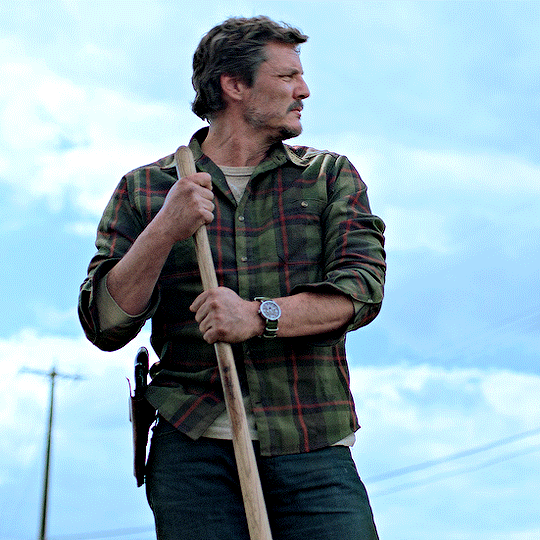

(GIFs not mine.)
Read chapter 1 here. This cannot be read as a standalone.
Summary: After Joel talks to Tommy about you, he goes back to the bar the following night to strike up a conversation— hopefully to get to know you.
Character Pairing: Joel Miller x fem!oc
Content Warnings: soft!joel, flirty!joel, nothing bad ever happens at tommy's, eventual established relationship, hella slow burn, ellie making fun of joel, alcohol consumption, oc is referred to as you, cussing, mentions death of parents, the usual tlou traumatizing shit tbh
WC: 1.8K
Divider by: saradika

Joel's day was longer than it needed to be today. He's spent all his thoughts on how he should strike up a conversation with you. It had to be perfect. Tommy had warned him that you had a sort of roughness to you— but Joel desperately wanted to look past that. He wanted to make a good impression on you. He worked his mind all day on you while doing some work around town for Tommy. But Tommy was right; you did have rough edges— more than most, dare you say. You had a lot of shit you went through growing up; you grew up during a pandemic, for fucks sake. You lost your mom when you were a kid, and you only had your dad to take care of you until he inevitably got shot in the head in front of you by a couple of raiders who were trying to steal your belongings.
You not wanting to let people in was the understatement of the century. You're scared they're going to get hurt because of you. Despite this, you did have a few friends— your bandmates. Even though they were your friends, you have trouble letting them get too close and personal with your feelings and thoughts. You don't mean to come off as cold or rude, but in this world, in this time? It's what keeps you alive. You can't let people in too close anymore, not with the way people will walk right over you for just about any reason nowadays.
You went to Jackson because you wanted to escape that. You were tired of running away from everyone. You always wanted to settle down somewhere to call home, but once you got to Jackson, even though most people were friendly to you, you still had a hard time letting go of the past behaviors you've spent your whole life developing. You've grown used to being alone— pushing people away— and pushing your own emotions out the window so far so that you make yourself believe they don't exist, but oh, they do. Every time they come up, it's like someone took a giant bag of bricks and swung it right at your body, breaking every bone possible and stomping on your heart until it's shattered. That's why you didn't let people in. Afraid everyone you let close would do that if they knew how much of a heartbroken woman you've grown to become.
You want Jackson to be different— you know you're safe here and that you don't have to worry about raiders or the infected anymore, but you haven't quite met the person who makes you willing enough to push past that wall of emotions you've been slowly building up all these years. You can fend for yourself— hell, you've done it your whole life, even before everything happened. You need someone who won't hold you back from what you know you're capable of.
—
Joel finally managed to finish the work his younger brother put him up to— and holy hell, was he tired. Evening came, and he managed to slowly but surely walk his exhausted body to the bar, just hoping that he would see you there.
As usual, on weekdays, you would pack up your guitar and meet your bandmates at the bar to play some old-timey music that reminded you fondly of your father. He taught you how to play the guitar before the pandemic hit, and you never put it down after that. You worked hours every day learning your favorite songs, which were influenced mostly by your father.
You fondled the bracelet on your wrist as you walked into the back of the bar; 'Ness' was engraved on it— something your father managed to make a few months before his death. You cherished it like nothing else. You meet up with your friends, instruments in hand, as you walk up onto the stage. You begin your set list— your calloused fingers were already pained from the practice you've been doing all day in your 'home.' Could you even call it that if you felt so out of place in this town?
—
Whiskey being Joel's favorite, he ordered a few glasses from the same bartender as the previous night, gulping them down relatively fast. The liquid took its quick path into all the different crevices of his worn and pained body and slowly began to numb it, giving him a slight buzz of tipsiness. His gaze occasionally drifted to you as your hand glided down the guitar's neck, pressing firmly against the strings as you strummed them with your other hand. Your focus never once drifted to him, though— you frankly had no idea who he was or even noticed he was there. You didn't notice anybody— why would you? You had yourself, and you didn't need anything more than that.
Finally, you managed to finish your set list for the night. Most people had left the bar by now to sleep for the night. Your throat was sore and dry from the singing, and your fingers stung like hell— they felt like they were about to fall right off your hand. You opted to sit down at the now relatively empty bar, trying to get comfortable on the old wooden stools. You couldn't even get your first drink up to your mouth to sip before someone settled into the stool right next to yours. “Hey there, darlin',” you hear the man speak, “Ness, right?”
You didn't like when people called you Ness— it was something that only the people you chose were allowed to call you. Specifically, your father— so who the hell was this old man calling you by your nickname like you two were buddies? “It's Vanessa,” you say bluntly, sitting down the glass of alcohol you still haven't gotten the chance to sip from yet. You look over to look at the man— his scruffy beard and mustache with his salt and pepper locks, paired nicely with brown eyes— you couldn't deny he was attractive, but you had absolutely zero time for thinking some middle-aged man was cute by any means.
The man nods, “The name's Joel,” he says, looking at you with his own glass of alcohol in his hand. You stare at the man, waiting for him to continue, “I'm new 'round here,” he finishes, pursing his lips in the sense of heavy awkwardness in the air. His southern drawl was heavy from the alcohol, and his face was not too far from your own, and you could smell the alcohol radiating off his body. This man has got to just be some drunk, right?
“Welcome to the town, I guess,” you say, looking away from him before lifting your glass to take a sip. The liquid coats your raw throat, making it sting just for a quick moment.
“Thank you, darlin',” Joel says, taking a sip from his own glass. “I was wonderin' if I could get to know ya?”
Get to know you? Who the hell is this guy? You question the man ‘why’ candidly, not looking at him, instead swirling the drink around the glass you're holding.
“Well, I— I saw you up there the other night, 'n I just wanted to talk to ya,” he says, looking down at his glass before sitting it on the bar the two of you were leaning on.
“So, you saw me the other night and came back again just to talk to me?” You question him, raising your eyebrow slightly. “You're damn determined. I'll give you that.”
He chuckles, “What can I say, darlin'? You're one of the prettiest girls in this town,” he says cheekily with a smirk as he takes another swig of his drink.
You scoff at his comment, “Fine, get to know me then,” you say before you take another sip of your drink, copying him. Little did you know, that one sentence would set you into motion for one hell of a ride with the new man in town— and you'd know soon enough just what you got yourself into. The two of you speak for the next couple of hours, and though you would still reply quite bluntly, you can't help but feel a tiny bit warm inside at how kind the man seemed to be— he was polite with his questions and didn't make you answer anything you didn't feel comfortable answering.
—
Before you knew it, the bartender kicked the two of you out of the bar so she could go home, leaving you standing awkwardly in the summer night's chilly weather. “I guess I'll see you 'round then, darlin',” he says, turning to you.
“Guess so, Joel,” you purse your lips as you look down at your feet and make them play with the ground below you. The two of you say your goodnights to each other before you both turn to walk to your houses, only to go in the same direction. “Your house this way too, or you just that hooked?” you jokingly question him as he walks beside you, making him chuckle before nodding.
“Yeah, my house is down this way too,” he says, looking over at you.
Joel had decided to walk you to your house, only to get there and realize his house was across the street. “This is my house,” you say plainly, stopping in front of your porch and crossing your arms across your chest.
Joel nods before looking over his shoulder and back to you, “Mine's right across there, actually,” he says calmly. You groan internally; you'll actually have to see this man more often than your cold heart wanted to. You nod before telling him goodnight once more and turning on your heel to walk inside, leaving Joel standing there.
—
Joel watches you walk inside your house before turning back and making a beeline to his own house, arm crossed across his broad chest the whole way. Tommy wasn't kidding; you did have an attitude problem. Joel only hopes to be able to break past that rough exterior to see the sunshine in you he knows is there. He just has to figure out how— and he's damn determined.
He walks inside his house, Ellie's sudden voice startling him, “You meet someone, old man?” she says, laughing lightly.
Joel grumbles as he kicks off his worn boots, “That's none of your concern, kid,” he replies, pointing at Ellie as he gives her a stern look, accentuating his southern drawl. Ellie lets out a small laugh at the grump of an old man she's living with as he walks himself upstairs.
Joel had just lost Tess, and it was hard— really hard, on not only him but Ellie too. Were you somebody who could heal Joel's brittle heart with your lost sunshine?
#pedro pascal#pedro pascal fanfic#pedro pascal character#pedro pascal fanfiction#pedro pascal fic#pedro pascal fluff#pedropascal fanfiction#joel miller#joel miller fanfic#joel miller fanfiction#joel miller fluff#joel miller pedro pascal#joel miller x fem!oc#joel miller x oc#it ends with you fanfic
32 notes
·
View notes
Text
Reading update


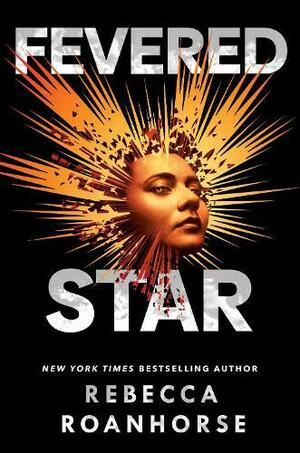
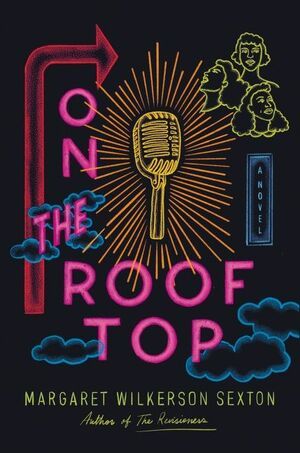
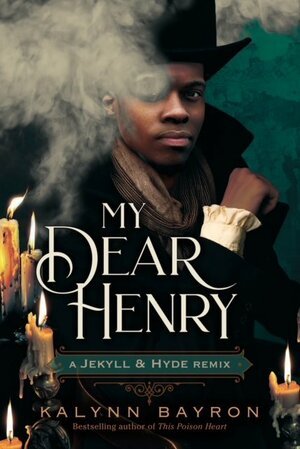
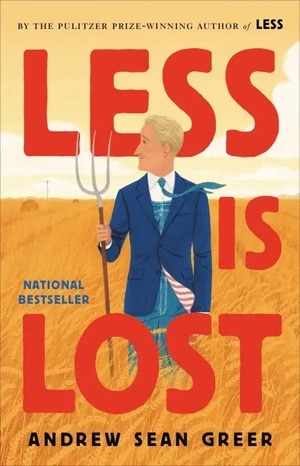
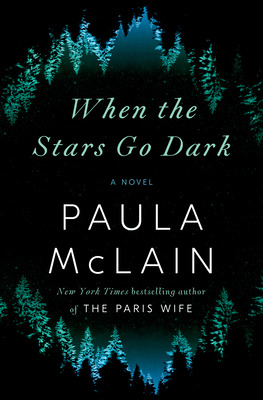
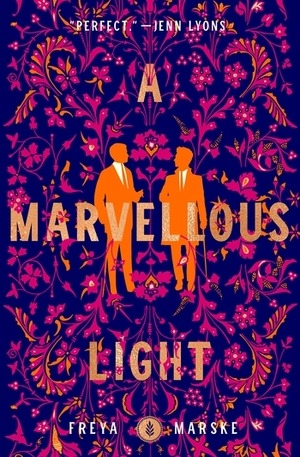

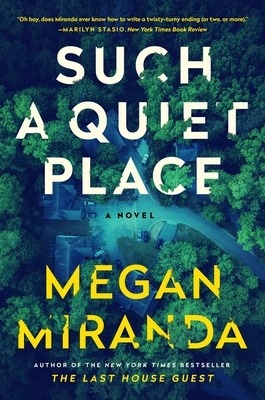
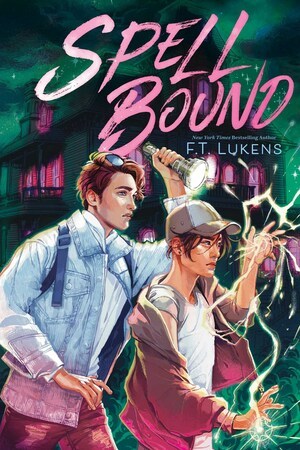
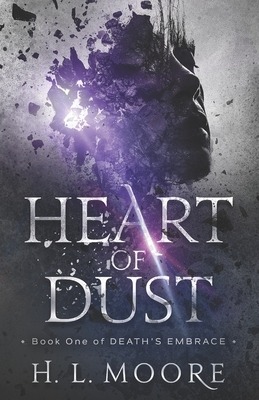
Baker Thief by Claudie Arseneault - DNF
I have to admit I didn't give this one much of a chance. I got it in a Rainbow Crate so I felt compelled to at least try to read it, but it's just not my kind of thing, and I DNFed at page 4. Really didn't like the writing style.
Idol Minds by KT Salvo - 2.75/5 stars
Almost DNFed this when I was about 50 pages from the end because it very abruptly lost my attention. I never really liked either of the main characters so I didn't care about their breakup or HEA. Also the sex scenes were weirdly short but also repetitive, somehow?
Fevered Star by Rebecca Roanhorse - 3.75/5 stars
I will be completely honest and admit that I could remember almost nothing of the first book when I started reading this the other day. I remembered that I really liked it, and that was about it. This one was...good?
Ok, so, let me see if I can put this into words. During the pandemic, authors kept writing, right? Especially if they were under contract to produce a series. And for some authors, that was fine. There is no discernible difference in their work. And then other authors, it's like...the anxiety brain fog got baked into their writing. There's nothing technically wrong with it. Things are happening. The characters are still engaging. And yet...sometimes it just feels like...things are happening. Like the author couldn't really process the emotions of the things happening, and thus couldn't really write feeling into the work? So it becomes just Things Happening. And I know how I should feel about it, but I'm not feeling it. Like when the dose of your antidepressant is too high, and you just have no feelings? It's sort of like that.
On the Rooftop by Margaret Wilkerson Sexton - DNF
There's nothing wrong with this book, tbh—it's well written with an interesting setting, characters with depth, and a theme that should, in theory, interest me. That said, I just wasn't feeling it. I won this book from my local bookstore and it's the sort of literary fiction that I read all the time in my teens and early twenties, even though I never really enjoyed it? I'm a genre fiction kid, as it turns out.
My Dear Henry: A Jekyll and Hyde Remix by Kalynn Bayron - 4/5 stars
I really really liked this, and I probably would have rated it higher, except it fell into the trap that a lot of queer retellings of classics do: in being forced to hew to a plot line from a century or more ago, a lot of story and character depth has to be jettisoned. This book did a much better job than The Henchman of Zenda by KJ Charles, but I still found myself wanting a more modern storytelling style. Overall it was really good, though.
Less is Lost by Andrew Sean Greer - 4.75/5 stars
I hated Less for most of the time I was reading it (but it didn't bore me, so that's something). When I got to the end and realized it was a romance, I ended up loving it, but I had to split the difference in my rating, haha. This is the direct sequel and I loved it. It's laugh out loud funny (which I did not find Less to be most of the time) and melancholy, but at its heart is also a love story.
When the Stars Go Dark by Paula McLain - 4/5 stars
A Marvellous Light by Freya Marske - 5/5 stars (reread)
I loved it even more on the reread. I would die for Edwin and Robin. I'm crazy excited for A Power Unbound.
Hoarfrost by Jordan L Hawk - 4.25/5 stars
Such a Quiet Place by Megan Miranda - 3.5/5 stars
I never know how to rate thrillers because honestly, they aren't my genre. This was part of the batch of books I won at trivia from my local bookstore. It was good in that it held my attention and was entertaining (and a bit creepy), but like, I don't know that I'll tell people that they simply must read it. But yeah, I read it in a day, so it's a quick read.
Spell Bound by FT Lukens - DNF
Ugh. Reads like my fantasy epic I was writing when I was 14 (see also: TJ Klune's Verania series). When I'm mentally editing the book as I'm reading, you know that's a bad sign. The first chapter could have been like, 2 pages (instead it was 18). Here's how Chapter 3, which introduces the other main character begins: Summer was such a waste of time and effort. Spring was okay. Autumn was the best. Winter wasn't bad.
Okay???? Great??????? Why do I care? I read for another page after that. Lukens is an author I really, really want to like, but the last two books I've read by them are just obnoxious. I could forgive The Rules and Regulations for Mediating Myths and Magic because it was one of their first books (it might have been their first?), but this...is not their first book, yet that's what it reads like. I suspect this is a manuscript they wrote a while ago, shelved, and brought it back out now that they're having success.
Heart of Dust by HL Moore - 5/5 stars
You know when you read a book that's so good, and you can't figure out why the hell you had to stumble across it by going down some algorithm recommendation rabbit hole? This is one of those books. Gritty and unique sci-fi setting, a backdrop of labor rights, aching gay mutual pining? Please read this.
#fevered star#rebecca roanhorse#reading tag#my dear henry#kalynn bayron#less is lost#andrew sean greer#a marvellous light#freya marske#such a quiet place#megan miranda#heart of dust#hl moore
10 notes
·
View notes
Text
The World Health Organization (WHO) is currently developing two international legal instruments intended to increase its authority in managing health emergencies, including pandemics;
(1) Amendments to the 2005 International Health Regulations (IHR), and
(2) A pandemic treaty, termed ‘ÇA+’ by the WHO.
The draft IHR amendments would lay out new powers for the WHO during health emergencies, and broaden the context within which they can be used. The draft CA+ (‘treaty’) is intended to support the bureaucracy, financing and governance to underpin the expanded IHR.
These proposed instruments, as currently drafted, would fundamentally change the relationship between the WHO, its Member States and naturally their populations, promoting a fascist and neo-colonialist approach to healthcare and governance. The documents need to be viewed together, and in the far wider context of the global/globalist pandemic preparedness agenda.
Context
The threat of pandemics.
The current rapidly increasing funding for pandemics and health emergencies is based on several fallacies, frequently repeated in white papers and other documents as well as the mainstream media as if they were facts, in particular:
Pandemics are increasing in frequency.
Pandemics are causing an increasing health burden.
Increased contact between humans and wildlife will promote more pandemics (as most are caused by zoonotic viruses).
The last pandemic to cause major mortality was the 1918-19 ’Spanish flu,’ estimated to have killed between 20 and 50 million people. As noted by the National Institutes of Health, most of these people died of secondary bacterial pneumonia, as the outbreak occurred in the pre-antibiotic era. Prior to this time, major pandemics were due to bubonic plague, cholera and typhus, all addressable with modern antibiotics and hygiene, and smallpox, which is now eliminated.
The WHO lists just 3 pandemics in the past century, prior to Covid-19; the influenza outbreaks of 1957-58 and 1968-69, and the 2009 Swine flu outbreak. The formers killed 1.1 million and 1 million people respectively, while the latter killed 150,000 or less. For context, 290,000 to 650,000 people die of influenza every year, and 1.6 million people die of tuberculosis (at a much younger average age).
In Western countries, Covid-19 was associated with deaths at an average age of about 80 years, and global estimates suggest an overall infection mortality rate of about 0.15 percent, which is similar to that for influenza.which is similar to that for influenza (0.3-0.4% with Covid in older Western populations).
Thus, pandemics in the past century have killed far fewer people and at an older age than most other major infectious diseases.
The Covid-19 event stands out from previous pandemics due to the aggressive and disproportionate responses employed, instituted contrary to existing WHO guidelines. The harms of this response have been discussed extensively elsewhere,, with little doubt that the resultant disruptions to health systems and increased poverty will cause far higher mortality, at a far younger age, than would have been expected from Covid-19 itself. Despite the historical rarity of pandemics, the WHO and partners are pushing forward with a rapid process that will ensure repetition of such responses, rather than first analyzing the costs and benefits of the recent example. This is clearly reckless and a bad way to develop policy.
The role of the WHO in public health.
The WHO, whilst having a role in coordinating cross-border health emergencies included in its Constitution, was founded on human rights principles and originally emphasized community and individual rights. These culminated in the Declaration of Alma Ata, emphasizing the importance of community participation and ‘horizontal’ approaches to care.
Apart from its basis in human rights, this approach has a strong public health basis. Improved life expectancy and major reductions in infectious disease in wealthier populations predominantly occurred through improved living conditions, nutrition and sanitation, with a secondary impact of improving basic health care and availability of and access to antibiotics. Most vaccines came later, though playing an important role in certain diseases such as smallpox. Basic nutrition and living conditions are still the predominant determinant of life expectancy, with GDP recognized as directly impacting infant mortality, in particular in lower income countries.
The emphasis of the WHO has changed over the past few decades in particular, associated with two major shifts in funding. Firstly, a large proportion of funding now comes from private and corporate sources, rather than being almost solely country-based at its inception. Secondly, most funding is now ‘specified,’ meaning it is given to the WHO for specific projects in designated geographies, rather than being used at the WHO’s discretion to address the greatest disease burdens. This is reflected in an apparent move from priorities based on disease burden to priorities based on commodities, particularly vaccines, that generate profit for its private and corporate sponsors.
In parallel, other ‘public-private partnerships’ have arisen, including Gavi, the vaccine alliance, and CEPI (dedicated solely to pandemics). These organizations include private interests on their governing boards, and address a narrow health focus that reflects the priorities of private sponsors. They influence the WHO through direct funding and through funding within WHO Member States.
Other UN agencies have evolved in similar ways, with UNICEF now heavily focused on implementing mass Covid vaccination among populations already immune, whilst children, its former focus, have had rapidly deteriorating health metrics. The World Bank has developed a Financial Intermediary Fund (FIF) to support related pandemic preparedness with the WHO as technical partner, in order to fund development of a surveillance, identification and response network as envisioned in the two WHO pandemic instruments (below) and backed by the recent G20 meeting in Indonesia.
The WHO pandemic instruments
The WHO is pushing two instruments to enhance its role and authority in health emergencies including pandemics; (1) Amendments to the International Health Regulations (2005) (IHR) and (2) a new treaty-like instrument currently designated CA+.
The IHR (2005) currently has force under international law but is written as non-binding recommendations. The World Health Assembly (WHA), the governing body of the WHO, will only need a simple majority of States (97 of 194) to pass the amendments. Countries will then have 6 months in which to opt out, otherwise being considered to have accepted the amendments as existing signatories to the IHR. This opt-out period was reduced from 18 months by the WHA in 2022.
The CA+ (treaty) instrument is due to be presented to the WHA in May 2024. Adoption will require a two-thirds majority of Member States.
Both draft instruments are currently passing through a usual WHO process of open and closed committee meetings and internal and external reviews, after submission of proposals by various States. The IHR amendments process is under the Working Group on Amendments to the International Health Regulations (2005)n (WGIHR) while the CA+ instrument is under the International Governmental Negotiating Body (INB).
What the two WHO pandemic instruments will do.
As currently drafted, the CA+ and IHR amendments complement each other. The IHR amendments concentrate on the specific powers and processes sought by the WHO and its sponsors. The CA+ concentrates more on the governance and funding to support these. Specificities in both instruments will change between now and the WHA vote in May 2023 and 2024 respectively. However, in broad terms, they are currently written to achieve the following:
IHR draft Amendments:
Expand the definitions of pandemics & health emergencies, including the introduction of ‘potential’ for harm rather than actual harm. It also expands the definition of health products that fall under this to include any commodity or process that may impact on the response or “improve quality of life.”
Change the recommendations of the IHR from ‘non-binding’ to mandatory instructions that the States undertake to follow and implement.
Solidify the Director General’s ability to independently declare emergencies.
Set up an extensive surveillance process in all States, which WHO will verify regulatory.
Enable WHO to share country data without consent.
Give WHO control over certain country resources, including requirements for financial contributions, and provision of intellectual property and know-how (within the broad definition of health products above).
Ensure national support for promotion of censorship activities by WHO to prevent contrary approaches and concerns from being freely disseminated.
Change existing IHR provisions affecting individuals from non-binding to binding, including border closures, travel restrictions, confinement (quarantine), medical examinations and medication of individuals. The latter would encompass requirements for injection with vaccines or other pharmaceuticals.
CA+ (treaty):
Set up an international supply network overseen by WHO.
Fund the structures and processes by requiring ≥5% of national health budgets to be devoted to health emergencies.
Set up a ‘Governing Body,’ under WHO auspices, to oversee the whole process.
Expand scope by emphasizing a ‘One Health’ agenda, being defined as a recognition that a very broad range of aspects of life and the biosphere can impact health, and therefore fall under the ‘potential’ to spread harm across borders as an international health emergency.
Both draft instruments remain under discussion, and further changes are likely. A recent external review committee report pushed back on some aspects of the IHR amendments in a report to the DG, but left much of the basis intact.
It is important to consider these texts together, and in the context of the wider pandemic preparedness agenda that includes agencies such as Gavi and CEPI, their private and corporate sponsors, and private industry lobby groups including the World Economic Forum (WEF). The WEF has been influential in promoting the agenda; CEPI was inaugurated at the 2017 WEF Davos meeting. The pandemic agenda must also be seen in the context of the unprecedented profits and wealth transfers, and the suspension of basic human rights that the Covid-19 public health response promoted.
The momentum behind the agenda
An international bureaucracy is currently being built with funding envisioned at up to $31 billion per year, including $10 billion in new funding. (For context, the entire current WHO annual budget is about $3.6 billion). This same bureaucracy will surveil for new and variant viruses, identify them, determine their ‘threat’ and then implement a response. This is essentially creating a self-perpetuating pandemic industry, with major internal conflicts of interest, funded by the world’s taxpayers but, being under a UN agency, having no national legal oversight and little accountability. Its justification for continued funding will rely on declaring and responding to perceived threats, restricting the lives of others whilst accruing profit to its sponsors through pharmaceutical recommendations and mandates.
While both texts are intended to have force under international law, countries can theoretically opt out in order to preserve their sovereignty and protect their citizens’ rights. However, low-income countries could potentially face financial pressures, restrictions, and sanctions from entities such as the World Bank that are also invested in this agenda. Of relevance, the 2022 United States National Defense Authorization Act (HR 7776-960) includes wording concerning adherence to the IHR, and action concerning countries that are uncooperative with its provisions.
What can be done
These initiatives, if continued, will reverse the direction of international public health and the WHO itself, driving back towards a colonialist and fascist approach to health governance reflecting values the world sought to put aside in the aftermath of World War Two. As the Covid-19 response demonstrated, they will have a wide and profound impact across society, removing basic human rights, increasing poverty and wealth concentration. They deserve global attention and a robust society-wide response.
Both draft instruments could be stopped by the IHR amendments failing to achieve 50 percent of Member States’ support, and the CA+ failing to achieve two-thirds majority, or, after adoption, failing to have a minimum 30 ratifications). While it is inevitable that some provisions will change prior to being put to a vote, and some amendments may fail to pass, the bureaucracy and mechanisms being built in parallel mean that the passage of any of the proposed provisions will further promote this anti-democratic approach to society. Blocking them seems vital, but the voting structure of the WHA (one country – one vote) makes international diplomacy by vested interests influential. Votes commonly depend on the views of a small group of health bureaucrats.
Blocking in national legislatures seems a very important approach, including the introduction of legislation to embed health policy including emergency responses within national jurisdictions, and specifically preventing national agencies from following external dictates.
While international coordination is important in public health, particularly in cross-border risks and disease spread, this must be at the behest of State parties. Such measures must respect the fundamental human rights principles established through the post-World War Two tribunals and treaties intended to stop colonialist and totalitarian approaches to individuals and international relations. This may require a different set of international agencies that have sufficiently strong constitutions to withstand private conflict of interest, and that cannot violate basic individual and national sovereignty. This may require defunding current agencies and replacement with structures more fit for purpose. If the world is not to be locked into a situation from which it becomes difficult to extract itself, this question must be addressed very urgently.
IHR amendments
The IHR amendments contain the most important aspects of the WHO’s pandemic preparedness initiative.
They are summarized in a previous publication, and should be read and understood alongside the CA+ zero draft.
INB CA+ zero draft
Extracts from the INB Zero Draft of the CA+.
Article 4. Guiding principles and rights
17. Central role of WHO – As the directing and coordinating authority on global health, and the leader of multilateral cooperation in global health governance
Emphasizing the central ‘directing’ role of the WHO.
Article 6. Predictable global supply chain and logistics network
2. The WHO Global Pandemic Supply Chain and Logistics Network (the “Network”) is hereby established.
3. The Parties shall support the Network’s development and operationalization and participate in the Network, within the framework of WHO, including through sustaining it in inter-pandemic times as well as appropriate scale-up in the event of a pandemic.
(b) assess anticipated demand for, and map sources of, manufacturers and suppliers, including raw materials and other necessary inputs, for sustainable production of pandemic-related products (especially active pharmaceutical ingredients)
(c) develop a mechanism to ensure the fair and equitable allocation…
Requiring (shall) Parties to support the WHO’s proposed global supply network. 3 (b) seems to imply a role for the WHO in requiring production outside of market forces. 3 (c), while seemingly innocuous and fair, would take allocation out of country purview and could be used to require compliance with WHO dictates on distribution.
Article 7. Access to technology: promoting sustainable and equitably distributed production and transfer of technology and know-how
The Parties, working through the Governing Body for the WHO CA+, shall strengthen existing and develop innovative multilateral mechanisms that promote and incentivize relevant transfer of technology and know-how for production of pandemic-related products on mutually agreed terms, to capable manufacturers,…
4. In the event of a pandemic, the Parties:
(a) will take appropriate measures to support time-bound waivers of intellectual property rights that can accelerate or scale up manufacturing of pandemic-related products during a pandemic, to the extent necessary to increase the availability and adequacy of affordable pandemic-related products;…
(c) shall encourage all holders of patents related to the production of pandemic-related products to waive, or manage as appropriate, payment of royalties by developing country manufacturers on the use, during the pandemic, of their technology for production of pandemic related products, and shall require, as appropriate, those that have received public financing for the development of pandemic-related products to do so; and …
Reflecting IHR amendment provisions on requirement to give up intellectual property, but in this case time-limited (determined by?). Includes waiver of royalty payments. As with the proposed IHR amendments, these provisions seem to impact States’ intellectual property laws.
Article 8. Regulatory strengthening
2. Each Party shall build and strengthen its country regulatory capacities and performance for timely approval of pandemic-related products and, in the event of a pandemic, accelerate the process of approving and licensing pandemic-related products for emergency use in a timely manner, including the sharing of regulatory dossiers with other institutions.
This reflects the accelerated nature of vaccines during the declared emergency for Covid-19, and the reduced regulatory oversight and safety trials related to this. This greatly reduces costs to pharmaceutical manufacturers in particular, and undercuts decades of development of regulatory oversight.
Article 12. Strengthening and sustaining a skilled and competent health and care
Workforce
3. The Parties shall invest in establishing, sustaining, coordinating and mobilizing an available,
skilled and trained global public health emergency workforce that is deployable to support Parties upon request, based on public health need, in order to contain outbreaks and prevent an escalation of small scale spread to global proportions.
4. The Parties will support the development of a network of training institutions, national and
regional facilities and centres of expertise in order to establish common guidance to enable more predictable, standardized, timely and systematic response missions and deployment of the
aforementioned public health emergency workforce.
Investment in building the pandemic bureaucracy that will underpin this agenda.
Article 13. Preparedness monitoring, simulation exercises and universal peer review
4. Each Party shall provide annual (or biennial) reporting, building on existing relevant reporting where possible, on its pandemic prevention, preparedness, response and health systems recovery capacities.
The surveillance mechanism, which appears built on the model of the review mechanism of the UN Office of the High Commissioner for Human Rights (OHCHR).
Article 15. Global coordination, collaboration and cooperation
2. Recognizing the central role of WHO as the directing and coordinating authority on international health work, and mindful of the need for coordination with regional organizations, entities in the United Nations system and other intergovernmental organizations, the WHO Director-General shall, in accordance with terms set out herein, declare pandemics.1
Article 17. Strengthening pandemic and public health literacy
The Parties commit to increase science, public health and pandemic literacy in the population, as well as access to information on pandemics and their effects, and tackle false, misleading, misinformation or disinformation, including through promotion of international cooperation. In that regard, each Party is encouraged to:
(b) conduct regular social listening and analysis to identify the prevalence and profiles of misinformation, which contribute to design communications and messaging strategies for the public to counteract misinformation, disinformation and false news, thereby strengthening public trust; and,
2. The Parties will contribute to research and inform policies on factors that hinder adherence to
public health and social measures, confidence and uptake of vaccines, use of appropriate therapeutics and trust in science and government institutions.
Provisions on managing free speech.
Article 19. Sustainable and predictable financing
1. The Parties recognize the important role that financial resources play in achieving the objective of the WHO CA+ and the primary financial responsibility of national governments in protecting and promoting the health of their populations. In that regard, each Party shall:
(a) cooperate with other Parties, within the means and resources at its disposal, to raise
financial resources for effective implementation of the WHO CA+ through bilateral and
multilateral funding mechanisms; (b) plan and provide adequate financial support in line with its national fiscal capacities for: (i) strengthening pandemic prevention, preparedness, response and recovery of health systems; (ii) implementing its national plans, programmes and priorities; and (iii) strengthening health systems
and progressive realization of universal health coverage;
(c) commit to prioritize and increase or maintain, including through greater collaboration
between the health, finance and private sectors, as appropriate, domestic funding by allocating in its annual budgets not lower than 5% of its current health expenditure to pandemic prevention, preparedness, response and health systems recovery, notably for improving and sustaining relevant capacities and working to achieve universal health coverage; and (d) commit to allocate, in accordance with its respective capacities, XX% of its gross domestic product for international cooperation and assistance on pandemic prevention, preparedness, response and health systems recovery, particularly for developing countries, including through international organizations and existing and new mechanisms.
Setting up the financial structure, requiring certain levels of budgetary application to pandemics irrespective of burden.
Article 20. Governing Body for the WHO CA+
1. A governing body for the WHO CA+ is established to promote the effective implementation of the WHO CA+ (hereinafter, the “Governing Body”).
2. The Governing Body shall be composed of: (a) the Conference of the Parties (COP), which shall be the supreme organ of the Governing Body, composed of the Parties and constituting the sole decision-making organ; and (b) the Officers of the Parties, which shall be the administrative organ of the Governing Body.
3. The COP, as the supreme policy setting organ of the WHO CA+, shall keep under regular review every three years the implementation and outcome of the WHO CA+ and any related legal instruments that the COP may adopt, and shall make the decisions necessary to promote the effective implementation of the WHO CA+.
Establishing the governing body for health emergency surveillance and response (which appears intended to be within WHO).
Article 21. Consultative Body for the WHO CA+
A consultative body for the WHO CA+ (the “Consultative Body”) is established to provide advice and technical inputs for the decision-making processes of the COP, without participating in any decision-making.
Another oversight body, part of this growing workforce supported solely for this purpose.
31 notes
·
View notes
Photo



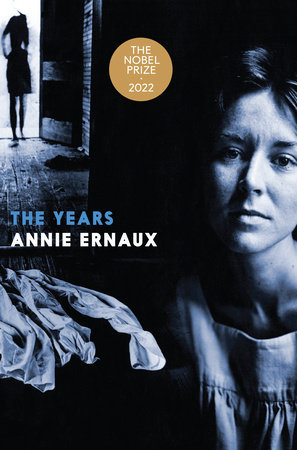
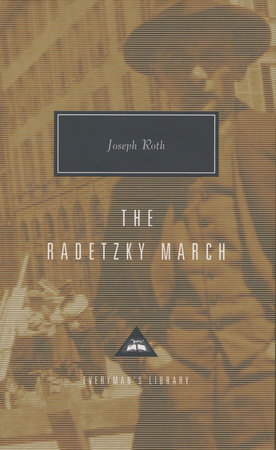



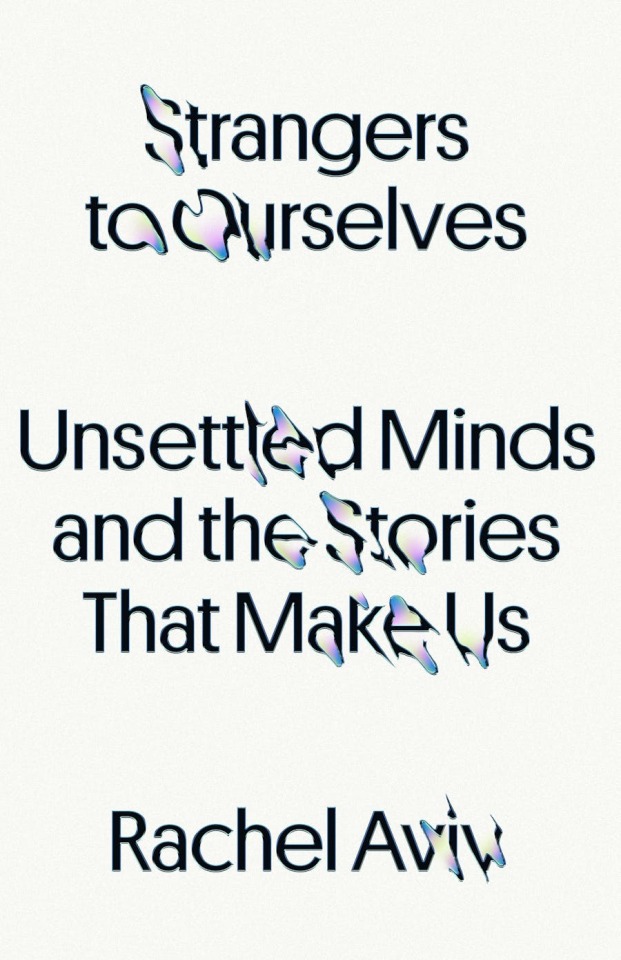
Best books I’ve read this year: end of year edition
I read a lot of great books this year so it’s really hard to narrow down my favorites, but here are some I read during the past six months that I most enjoyed. (You can read part one here).
Best new releases: fiction
Not a ton of novels I loved but I thought Afghan American author Jamil Jan Kochai’s short story collection The Haunting of Hajji Hotak was absolutely stellar.
Honorable mentions: Flight by Lynn Steger Strong and Small Game by Blair Braverman.
Best new releases: nonfiction
Partisans by Nicole Hemmer - argues convincingly that Trump was the natural evolution of decades of reactionary GOP politics, not an abberration.
Ducks by Kate Beaton - amazing graphic memoir by the Hark, A Vagrant writer about working in the Alberta oil sands to pay off her student debt. An incredible portrait both of what it’s like growing up working class in a small town and the sacrifices that entails and the trauma of being one of the few women in a very harsh working environment.
Strangers to Ourselves by Rachel Aviv - fascinating series of vignettes by one of my favorite New Yorker writers exploring different people’s perceptions of mental illness and how we can become trapped in our own narratives.
By Hands Now Known: Jim Crow’s Legal Executioners by Margaret A. Burnham - this was hard to stomach because of the depth of cruelty it described but is well worth reading to understand just how all-encompassing a reign of terror Jim Crow was for black Southerners.
Getting Me Cheap: How Low Wage Work Traps Women and Girls in Poverty by Amanda Freeman and Lisa Dodson - Damning Indictment of how this country treats poor people and how women and girls, particularly single mothers, bear the worst burden.
We Need to Build: Field Notes for a Diverse Democracy by Eboo Patel - I would get every left-of-center person to read this if I could.
Honorable mentions: His Name Is George Floyd by Robert Samuels and Toluse Olorunnipa and Bad Jews by Emily Tamkin.
Best fiction (non new)
I ended up reading a lot of fiction by 20th century European authors, and particularly loved The Radetzky March by Joseph Roth, The Post-Office Girl by Stefan Zweig, Everything Flows by Vassily Grossman and The Years by Annie Ernaux. Reading these felt like getting a little tour of the century, particularly of how radically modern Europe was shaped by WWI and WWII.
Boy Parts by Eliza Clark and In a Lonely Place by Dorothy Hughes were my two other favorites, and are of a pair in that they’re refreshing (despite being over 60 years old in one case) takes by woman writers on a specific style of novel and make incredible use of an unreliable narrator.
Best nonfiction (non new)
I continued to read a lot of nonfiction about abortion and most appreciated The Girls Who Went Away by Ann Fessler, which details the human cost of the “baby scoop” era and Beggars and Choosers by Rickie Solinger, which criticizes the shift from rights to choice-based language in discussions of reproductive politics.
I also really enjoyed Mark Lilla’s The Shipwrecked Mind about reactionary politics, which honestly felt like a better version of The Decadent Society and Minor Feelings: An Asian American Reckoning by Cathy Park Hong, which was written before the pandemic and felt extremely prescient about a lot of the discourse of the past few years.
Best poetry
I didn’t read a ton of poetry that really grabbed me but I enjoyed Sherry Shenoda’s The Mummy Eaters, which explores the author’s Coptic Egyptian heritage. From previous years, I enjoyed Philip Metres’ Shrapnel Maps and Richie Hofmann’s Second Empire.
36 notes
·
View notes